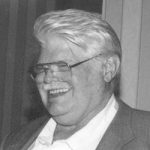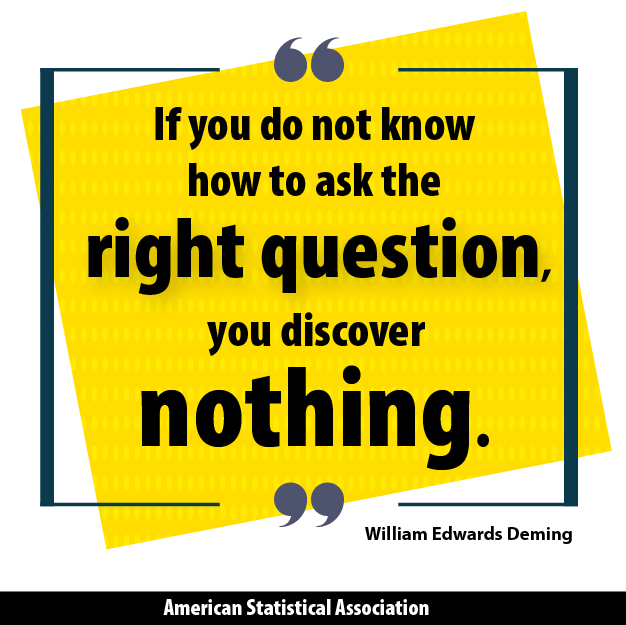John Bailar, a longtime member of the ASA, passed away recently. As a tribute to his memory, we have reprinted an inspirational piece he wrote in 1990. We hope it inspires you as you ponder why you chose to be a statistician.
 John Bailar, who passed away last month, was a noted biostatistician and scholar who held both an MD and PhD and worked at the National Cancer Institute for many years. In 1991, he was awarded the creative genius award from the John D. and Catherine T. MacArthur Foundation.
John Bailar, who passed away last month, was a noted biostatistician and scholar who held both an MD and PhD and worked at the National Cancer Institute for many years. In 1991, he was awarded the creative genius award from the John D. and Catherine T. MacArthur Foundation.
People with the misfortune of not being statisticians seem to have a lot of misconceptions about our field, perhaps because it can include everything from baseball trivia to the most abstract measure theory. But for future and even current students of statistics, the more important question may not be “what is statistics?” but “why statistics?” Why is statistical thinking so important to science and society? The answers lie not only within ourselves—in the daily routine of the statistician’s work as we try to solve one or another narrow problem—but within the realm of the public arena: How can our work affect the larger world of science and society?
First, the daily work of the statistician. In choosing statistics as a career, you are choosing a chance for fruitful involvement in almost any field of scientific endeavor. Statistics is the science at the core of the scientific method, and hence can be important wherever science is important. A good statistician must know such things as how to pick questions for study, how to frame specific hypotheses, and how to monitor and maintain data quality—all while understanding the potential impact of bias and the problems of generalizing results to populations not studied. These are skills that can be readily transported from one problem to another or one scientific discipline to another.
In choosing statistics as a career, you also are choosing the ability to take on new challenges, more so than in most other professions. In my own career, this flexibility has led me to many interesting things I never expected or even thought about. For instance, although I have a medical degree, I never actually practiced medicine beyond my internship; I have been involved solely in (medically based) research and I’ve changed the direction of my work to some degree every few years. As time passes, the changes get bigger and I seem to take on broader problems. But I find that everything I’ve learned remains useful. This is again because the most fundamental concepts of statistics are universal—sharpening them in one field makes them sharper for any other field.
More than anything else, my choices in work have been shaped by what I find interesting and what might have useful public impact. Changes in direction can be valuable, perhaps even more so for statisticians than for others. As statisticians, we work to develop skills, concepts, and techniques that can be applied to a wide range of problems. In this, statistics resembles mathematics, or even technical writing. Maybe this is why it seems that after more than 30 years of work, I still make so much use of all the things I learned when I was just starting.
Beyond personal career choices, it is important for statisticians of all kinds to ponder the “why” of statistics in a larger sense: What can we, as statisticians, offer to the greater body of scientific knowledge and the public good?
As a profession, we need a much broader view of our own role. Statisticians have much to offer in science, especially in the study of complex problems. We do ourselves no favors by teaching, or learning, that statistics means just the familiar computations and algebra, or by presenting ourselves as experts for hire to solve some specific small problem. We do ourselves no favors by avoiding the really big problems that face the country or by hiding how much statistical thinking can help in solving those problems. Some of us have to be willing to roll up our sleeves and fight to protect sound statistical findings, to make sure that they have an appropriate public impact. When statisticians see a problem that is fundamentally statistical, we need to do more than find an answer—we need to make sure that the answer is widely understood and that appropriate action follows. Some of us have to be willing to invest time and effort, and take the risks and abuse, that go with major public controversy. (But I’ll let you in on a secret: A big public fuss can be a lot of fun!)
But before we start sharing our findings with the public, before we rush to publish, we must be sure that our methodology is as rigorous as possible. We are not playing intellectual games; we have a chance to make a better world. Thus, I regard the lost opportunities—specifically bad science—as unethical, and much of my time lately has been spent considering the ethical aspects of good and bad statistics—that is, good and bad science. This interest in ethics came straight out of my interest in statistics. I didn’t always call it ethics, but I knew good science when I saw it and much of my interest has been in sorting out not only good science from bad, but supergood science from good science.
The ability to apply strict ethical standards to the scientific method is not purely instinctual or the sole province of the most brilliant: Ethics can be taught, just as good statistical and scientific practice can be taught. In the process, our students, trainees, and junior colleagues will learn appropriate standards of professional conduct.
I suppose all this sounds a bit “heavy.” It is not my intention to convey a sense that statisticians should carry a burden throughout their working lives. But we are fortunate that we can combine our scientific interests with the ability to make a positive difference in the world. Every new corner of my career brings new interests and delights.
I hope yours will do the same.




Leave a Reply